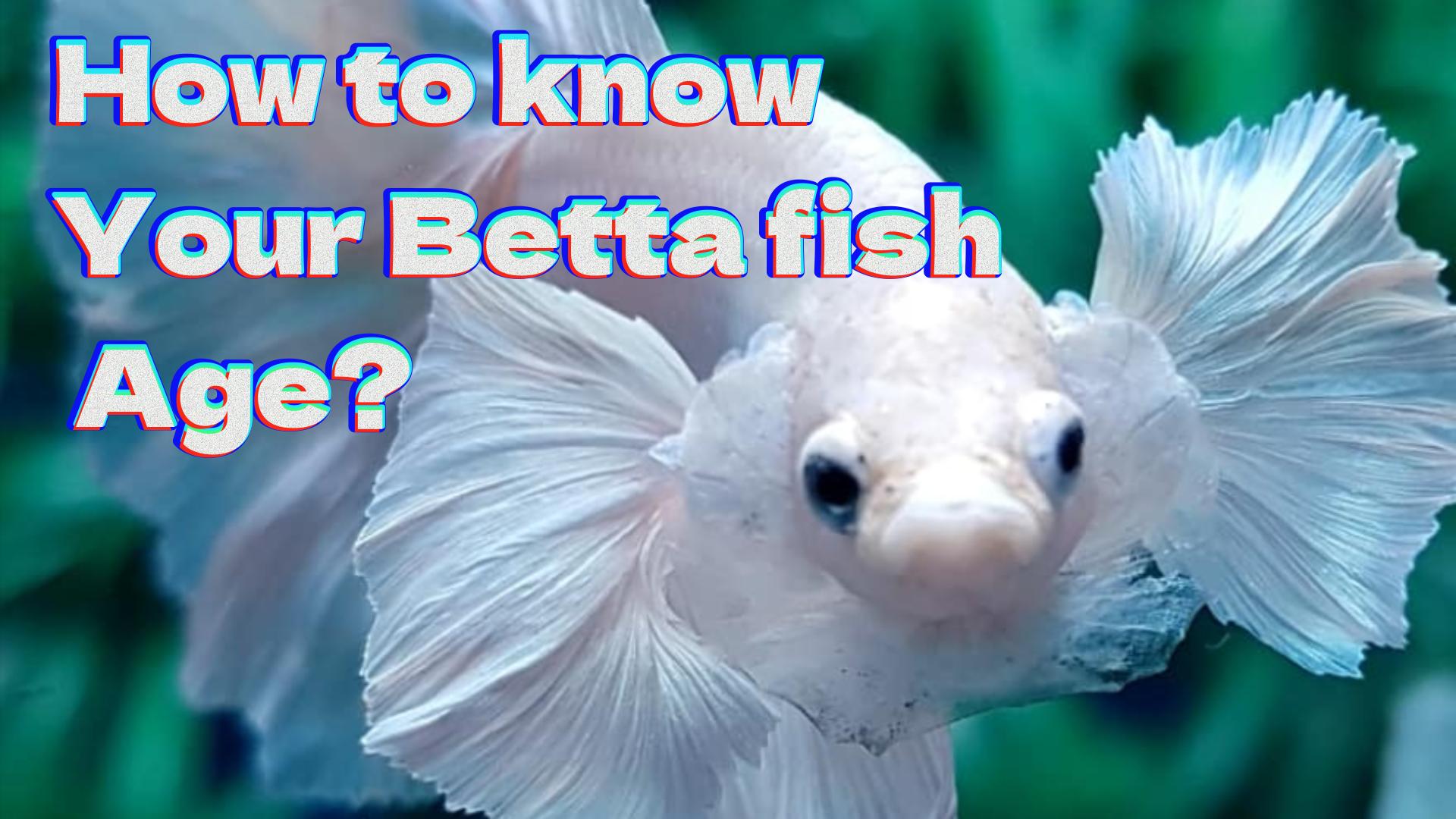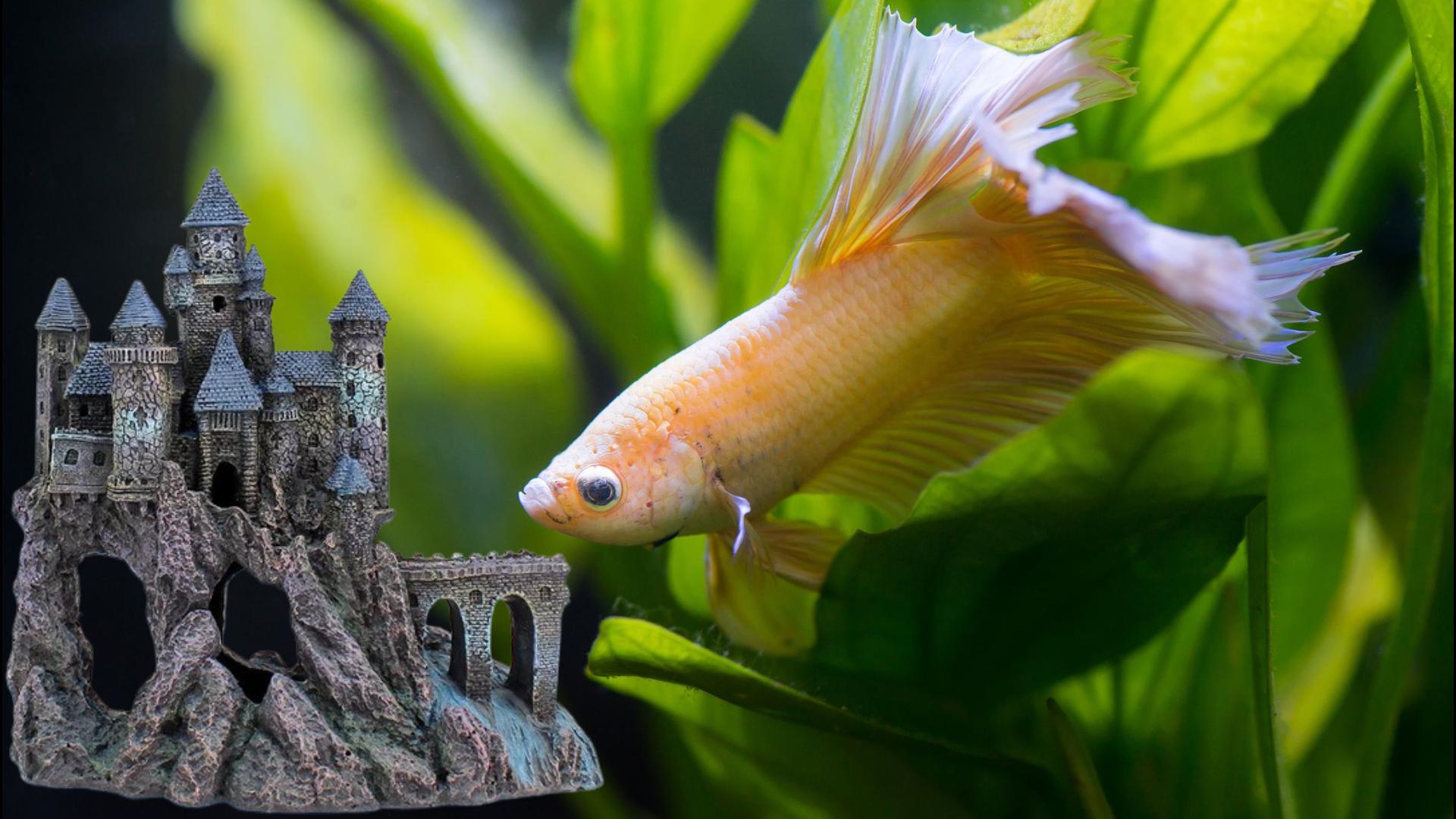How can I determine the age of my Betta fish? Is my Betta fish getting older? How to take care of older betta fish? Betta fish are often purchased from pet stores or online which doesn’t come with age or breeding information.
If you purchase betta fish from a reputable breeder or store, you might be able to get the exact age from them. However, even without those details, this blog can help you find out the age of your Betta fish. Let’s get started.
If you don’t have access to its birth details, there are a few physical factors such as size, color, energy, movement, eye color, body shape, and fin structure that can be used to determine the age of a Betta fish.
How long betta fish can live?
Betta fish live for three to five years on average. Betta fish that you buy from a pet store are already at least six months old. You’ve got to understand this to have fair expectations about your Betta fish’s age. I’ve owned betta fish from birth for just over 4 years, so proper care will extend their lives.
1. Betta fish size – Age Of Betta Fish
Adult Betta fish are usually about 3 inches long. It takes the Betta fish four months to reach adult size, also males are much larger than females. Betta fish are usually sold only as adults in fish stores. You can measure the length of your fish’s size with a measuring tape.
However, it is difficult to accurately measure a Betta. It’s usually enough to hold a measuring tape up against the glass to get an estimate. You’ll need to be patient since most healthy Betta doesn’t stay still for long. This will help you determine whether your Betta fish is fully grown and an adult.
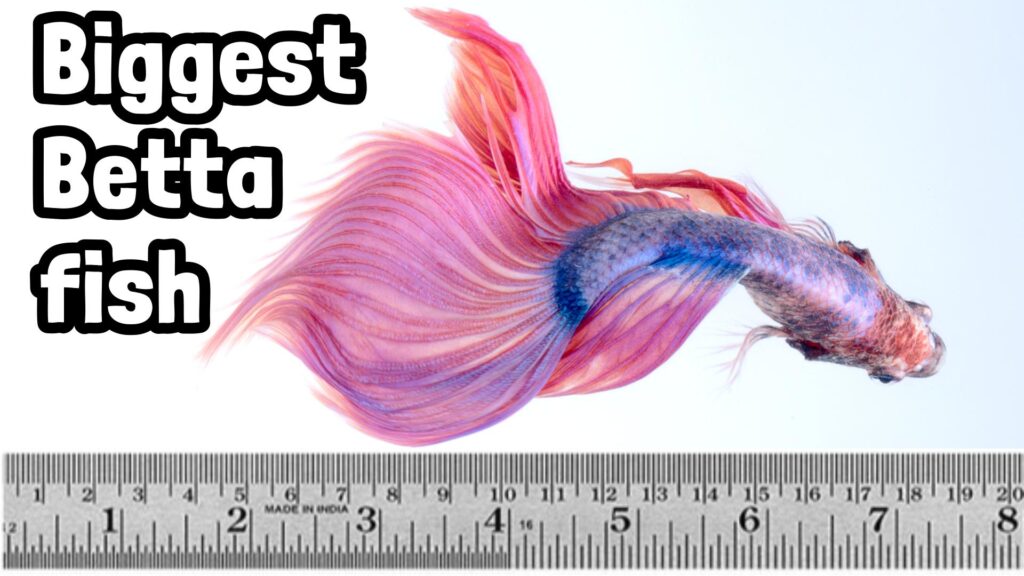
2. Betta Color
In general, young Betta is vibrant, and middle-aged Betta is dull. Aged Betta fish have faded and muted scale colors. However, wild Betta fish tend to be gray or dull-colored and only show color when they fight. Stressed Betta fish from shipping or pet stores will also look faded. It’s normal for betta fish. Your Betta’s tank must be vibrant and colorful once he has settled in.
3. Humped back
One primary sign of an older Betta (most ages over 1.5 years) is a humped back. Older Betta fish tend to develop a raised back, similar to that of older humans. This occurs in both male and female bettas and is generally a helpful sign that your betta is older in age. That being said, this does not mean that your Betta will die soon. The average lifespan of a betta is anywhere from 3-5 years of age.
4. Betta fins
The fins of an adult Betta are beautiful and flowing. This is a clear indication of the age of your Betta if it has this characteristic. Make sure you know your Betta fish’s gender. Female betta fish don’t have long fins like males. So female betta fish will never get long-flowing fins.
5. Acting lethargic
The aged Betta fish will act more lethargic, rest more often than before, and will generally be less active. The same thing happens to people as they age. This is a normal part of growing old and can be expected in most pet species. However, if your betta has other signs of being very young, lethargy won’t be associated with old age.
Monitor them closely for other signs of illness. Most illnesses that Betta gets will have obvious symptoms. There are many signs of illness, such as cloudy eyes, a gold sheen, a caved-in stomach, torn fins, blackened fins, and a red belly. Check out the channel page for more info on betta illnesses.
6. Cloudy eyes – Age Of Betta Fish
If you ever look closely at a Betta’s eyes, you’ll see that they’re incredibly delicate and detailed. Betta fish can even see every color that we can. As they age, they are more prone to developing eye infections, or eye complications.
But a cloudy eye is most likely a type of eye infection. These can normally be treated with extra water changes, or with antibiotics. However, old betta may naturally develop cloudy eyes, mostly due to age.
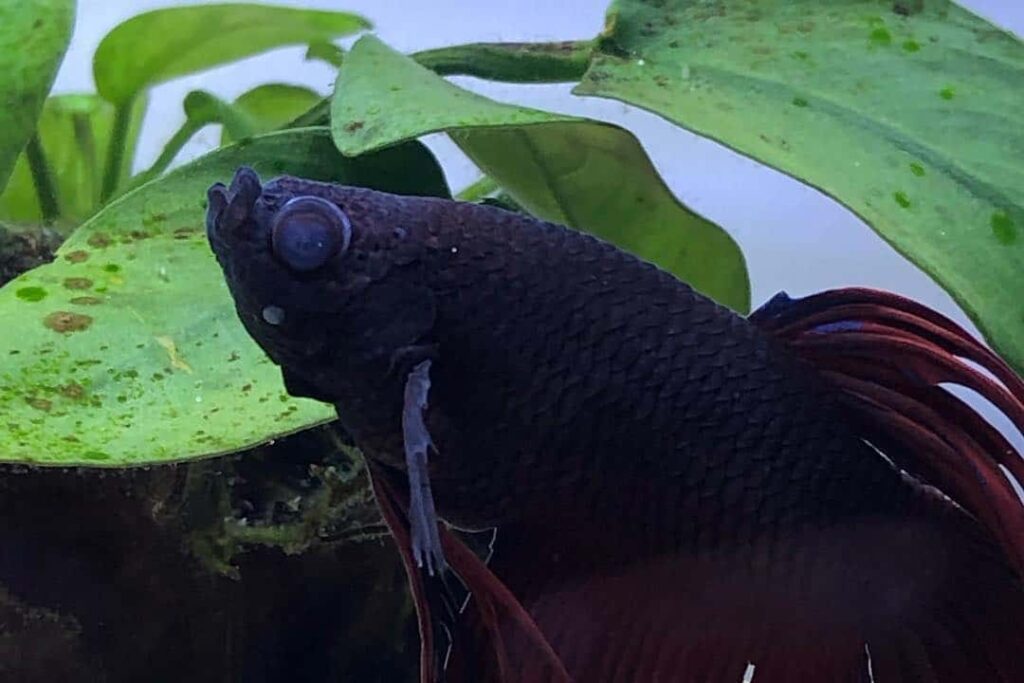
7. Body and scales
The body and scales of an older Betta will look very different from those of a young one. As they grow and age, their fins will begin to develop striking coloration. However, the color of the fins may fade after a year or two. Also, the scales look dull.
The other possibility is the marble gene; this gene is randomly activated throughout a betta’s life and causes it to permanently change colors, at least until the gene activates again. Bettas will revert to darker and darker colors as time goes on, changing from bright reds and oranges to deeper blues, purples, and blacks.
These color changes should not be a concern. However, if you notice dark scales and black spots on the fins, you may want to consider ammonia poisoning as a possible factor. This type of poisoning leaves black chemical burns on fish and is often lethal. Therefore, it is crucial to catch this type of poisoning and treat it as soon as possible.
8. Vertical stripes
If you see stripes on an adult or older male Betta, it’s problematic. These stripes are called “stress stripes” because they only appear when Betta is stressed out.
On the other hand, if you see vertical stripes on your female betta, those are breeding stripes. They can also be a sign of stress, but they’re usually only visible when bettas want to mate and are around male bettas.
Old Betta may naturally develop cloudy eyes, mostly due to age. If this begins to impact their sight, you will need to take precautions to protect them. If they have tankmates, watch them closely to ensure that the other fish are not picking on them.
In addition, ensure that they are able to get enough food. If they are, they will be able to live out the rest of their lives happily.
How Long can betta fish live in a bowl?
Often, Pet keepers often keep Betta fish in small containers or fish bowls. Few of the most common questions among Betta lovers are, Are they able to live naturally in a fish bowl? Is it possible to keep a betta fish healthy in small containers?
In their natural habitats or well-maintained aquariums, Betta fish can live for three to five years. Their life expectancy will drastically decrease if you keep them in a fishbowl.
Betta fish live as long as they’re cared for and are kept in the right conditions, just like humans and animals. Let’s take a deeper look at the real benefits and problems of raising betta fishes in small containers.
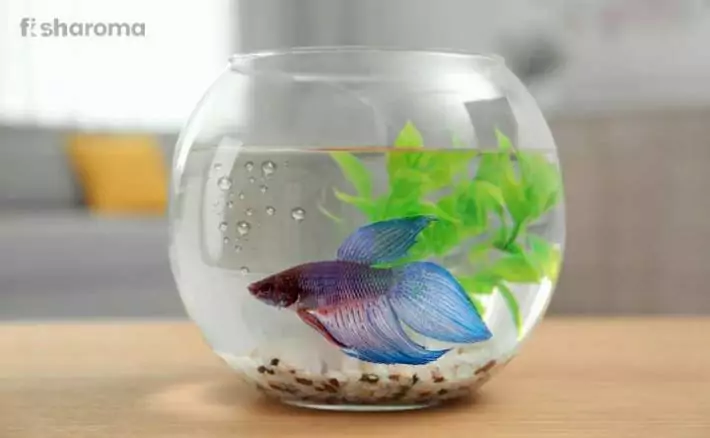
There are lots of pet store owners, marine life experts, and vets who don’t recommend keeping betta fish in fishbowls. Betta fishes need at least 3 to 5 gallons of tank space, plants, a filter, a heater, and proper water conditions to stay healthy. Because of their natural ability, Betta fish will still be able to live in environments that are difficult to survive. If the water in a tank is not healthy, a fish’s life span will be drastically reduced and they’ll die sooner than their natural lifespan.
People often comment about Betta breeders keeping their fish in small containers. But they recycle 100% of their water at least every 2 days, they feed only fresh food, and maintain proper water quality and temperature, which isn’t possible for pet owners.
Additionally, breeders keep Betta fish only from birth to 5 months before selling them.
Every betta keeper should know these few basic tips on betta care to keep your fish happy and healthy. Make sure your fish tank is at least 3-5 gallons in size. Betta fish enjoy the water with a pH of 6.5 to 7.5 and a temperature of 76 to 81 degrees Fahrenheit.
The water in your tank should be treated with a dechlorinating water conditioner whenever you add water to it. Betta fishes do not need filtered tanks, but they will keep the water cleaner, reducing the amount of time you have to spend cleaning your tank. In choosing a betta’s tank, choose at least one or two hideouts, so your fish have somewhere to hide away and relax.
These hideouts can be planted or silk hideouts to swim through or rocks. It’s critical to remember that betta fish have delicate fins, so pick smooth decorations and soft plants that won’t catch on their fins and tails. Feed your betta once or twice a day at about the same time.
If you feed your betta pellet food, you will need to feed him 5 to 8 pieces based on your betta size. Keep a tank heater setup in case the temperature can drop below 76 degrees Fahrenheit.
Our aquarium videos are published every week. So don’t forget to subscribe and hit the bell icon to receive all our upcoming updates.
You can leave us a comment below on your experience of keeping betta fishes in small containers or bowls. Thank you for watching. See you in the next video

